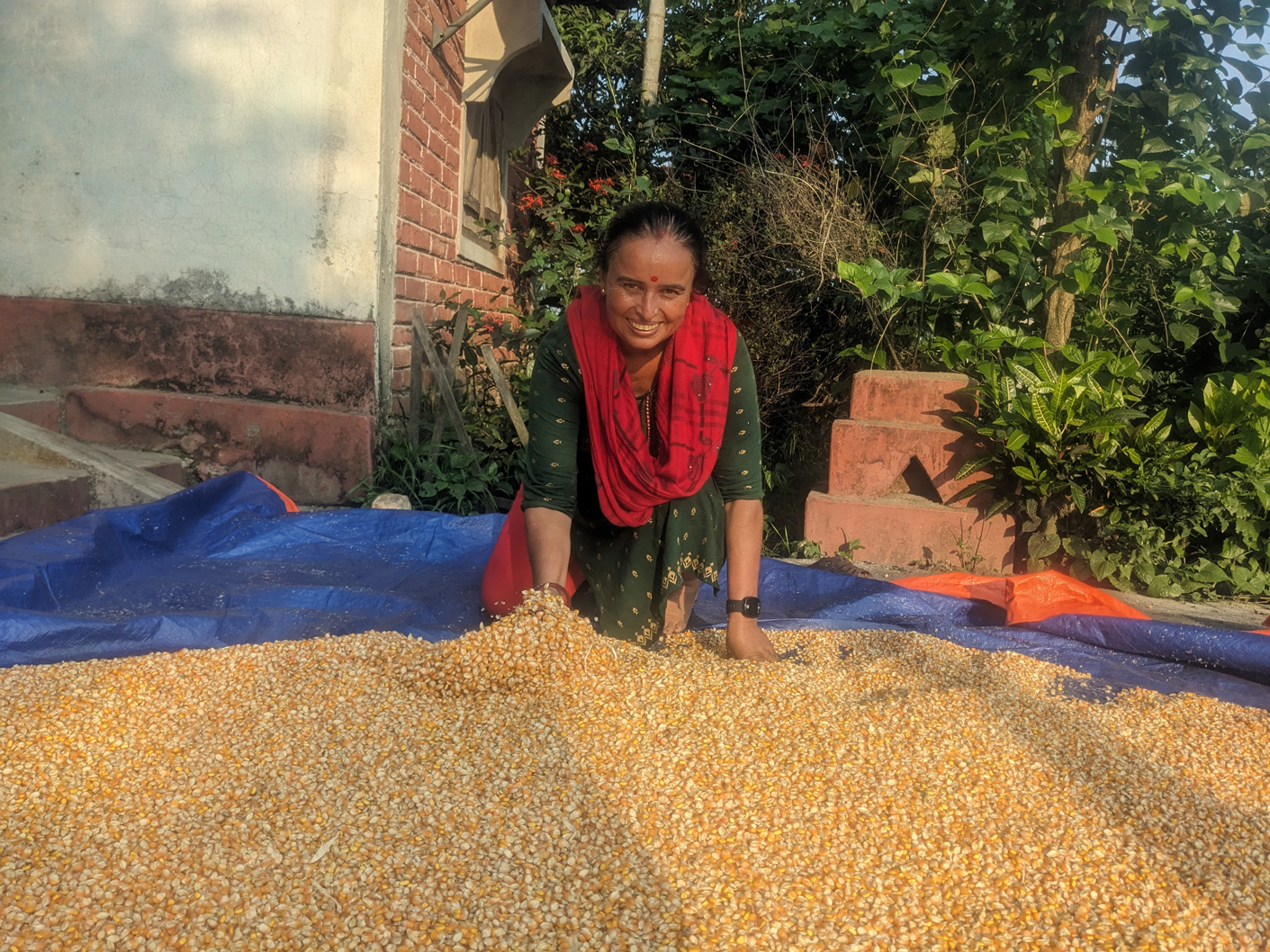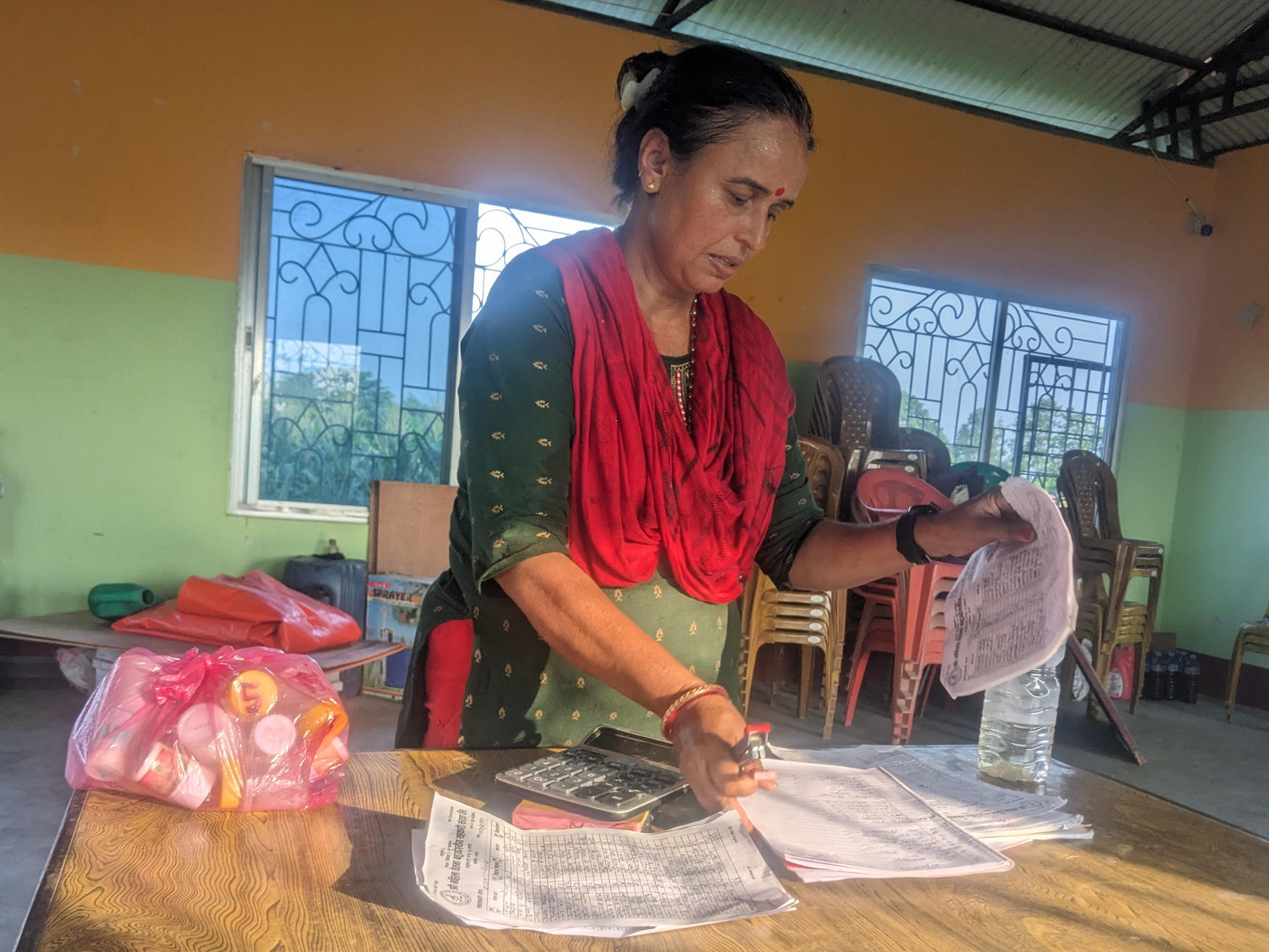
Gita Adhikari. Photo ©FAO/ Sewa Bhattarai
Women are mastering climate-resilient farming for bigger and better yields in Nepal and farmer field schools are helping them to turn around perspectives and degraded lands.
One such woman, Gita Adikhari, realised something significant had changed when her farm in the Jhapa District of eastern Nepal yielded nearly double the amount she would normally harvest.
The bumper potato crop was not by chance but as a result of learnings from a Farmer Field School (FFS) run by the Food and Agriculture Organization of the United Nations (FAO) with funding from the Green Climate Fund.
The increased yield of potatoes “was like confirmation that we were doing things right, and it motivated me to keep learning and improving our farming methods for even better results later on,” says the 47-year-old farmer.
The region in which the FFS are concentrated is Churia, the watershed area of the country, where Gita and her fellow students also live. This region faces an array of environmental issues, such as deforestation, soil erosion and loss of biodiversity.
These challenges coupled with the impacts of the climate crisis are putting pressure on local community members’ livelihoods. As rainfall becomes increasingly erratic and temperatures rise, Gita says: “We’re seeing crops struggle to grow like they used to, and sometimes they fail altogether.”

An overarching aim of the learnings is to make farming systems more resilient to climate change. For example, to reduce pressure on forests for fuelwood and forage, the FFS trains farmers to cultivate forage and plant trees for fodder on their own land and to collect dung and urine from livestock for liquid fertilizer and compost. These practices all help to curb open and uncontrolled grazing and the depletion of the soils.
The project’s restoration efforts will reduce 11.48 million tonnes of CO2 equivalent over the next 20 years.
Since attending the training, Gita says, “I’ve changed a lot of things on the farm. Before, I didn’t know much about farming practices, so I used chemical fertilizers without really understanding their harmful effects or how much to use. I also didn’t know which crops to grow together. But now, I’ve started using jholmol (homemade bio-fertilizer and bio-pesticide) and compost made from manure.”
Another important element that the FFS demonstrates is how to use biochar, a charcoal-like substance made from crop residue, to improve the soil and mulching techniques to conserve soil moisture. These practices are used alongside intercropping to make cultivation more efficient while providing organic matter to fertilise the new crops.
Growing confidence
Although Gita’s husband runs a small shop in the community, many of the men in the region are working overseas. Therefore, Gita describes, “The majority of the farm work falls on women’s shoulders. This means we have to juggle between farm work and household chores, which can be tough. Plus, we often lack the proper infrastructure and knowledge to work efficiently, which affects our productivity.”
Though women do most of the work, they still struggle with having a voice in decisions due to cultural and traditional norms.
Gita explains, “In our rural community, women don’t get many opportunities to speak up or share their thoughts openly because of our culture. It’s just how things have always been, and it made me feel like my voice didn’t matter as much.”
For this reason, the FFS works with the women, not only to gain a better living from their land but also to raise their confidence. “I’m no longer afraid to share my opinions and get involved in the community,” says Gita.
Actively involving women in decisions on agriculture and managing rural resources enhances the community’s resilience and promotes greater gender equality, says Gita. Her role is particularly crucial as the leader of the 22 women out of 28 students.
Despite the challenges, “I have hope for the future of the Churia region. With proper conservation efforts and sustainable practices, we can work towards restoring the health of the ecosystem,” Gita says.
It’s that aspiration which is at the heart of the project. Working closely with a range of actors including all levels of government and community-based organizations, the project is helping Gita and her fellow farmers build up both their own confidence and their region’s future.
Source: the FAO News and Media office, Rome
– global bihari bureau





